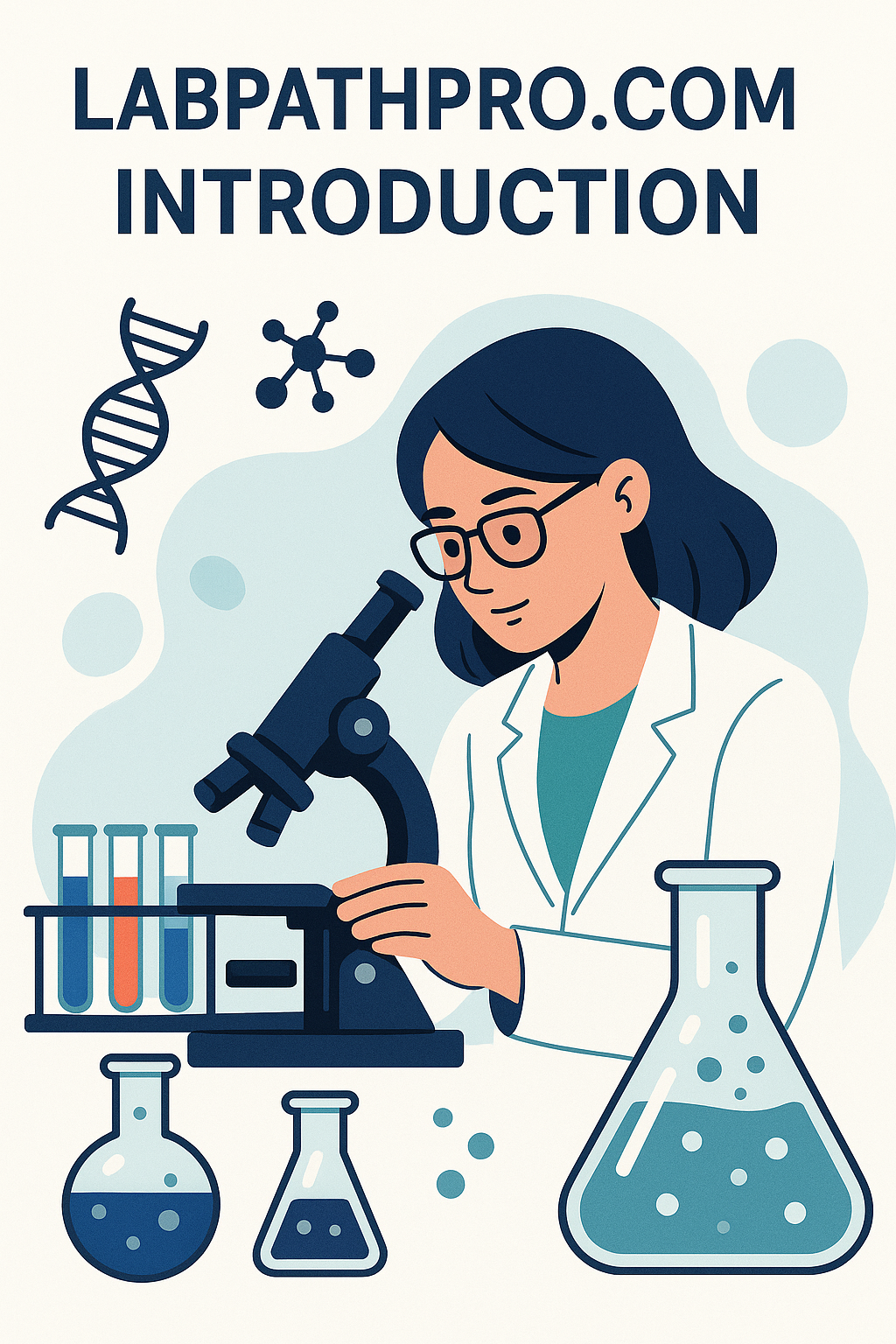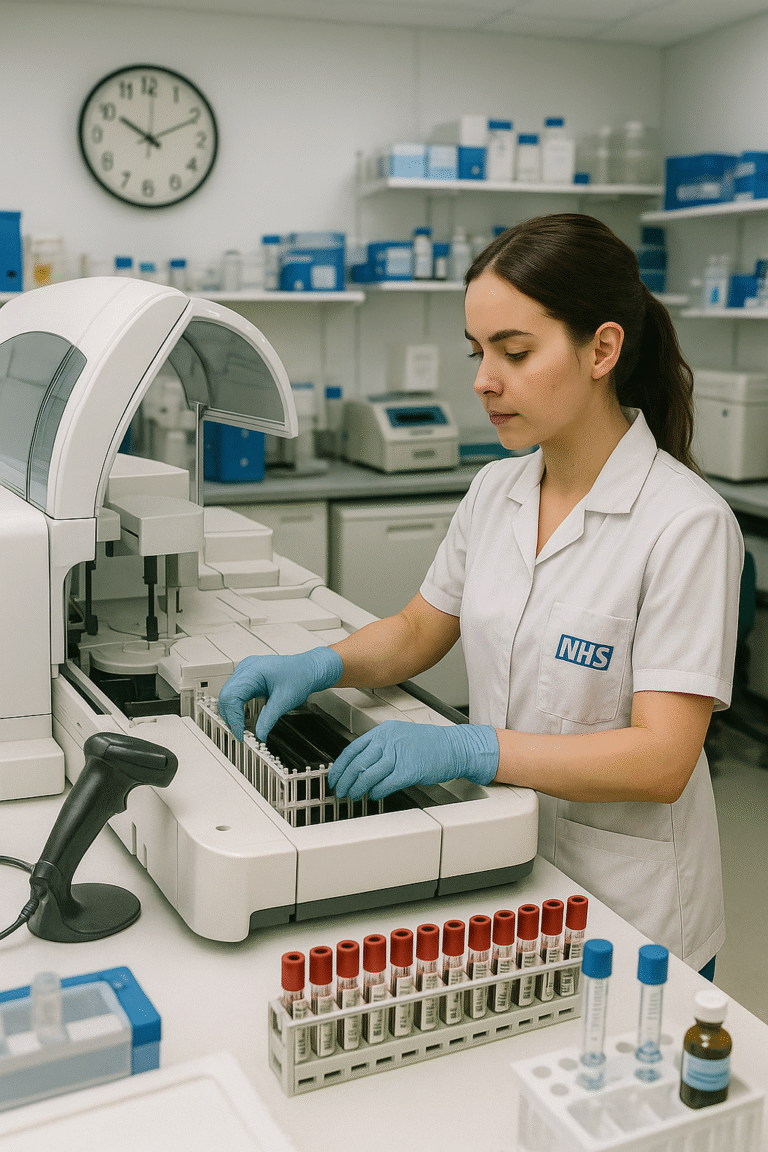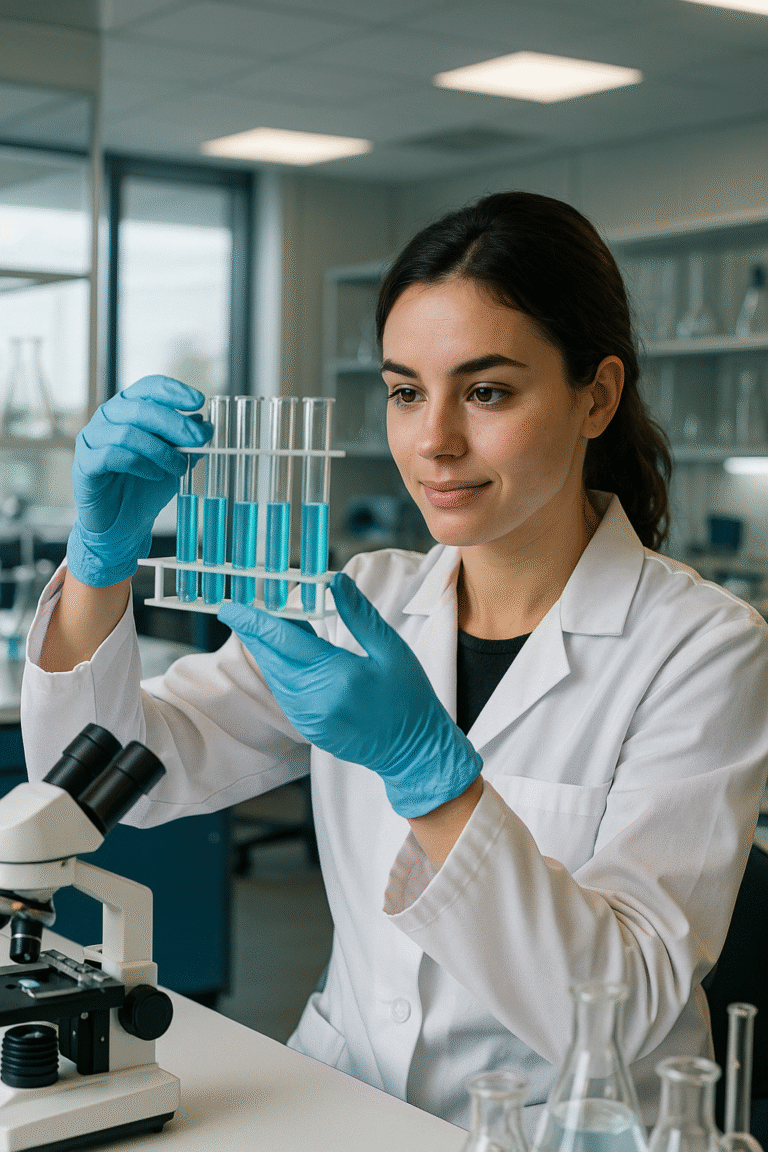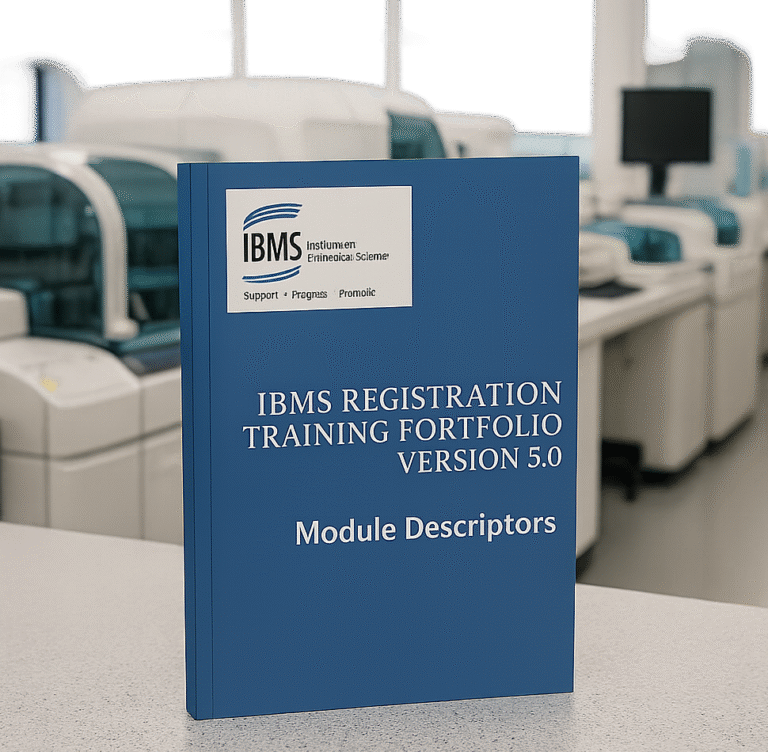Your Guide to Biomedical Science Careers, Training, and Diagnostic Technology By Ayyaz Ahmad – Deputy Training Lead, Specialist Biomedical ScientistHello and welcome to LabPathPro.com – a blog created to support Biomedical Science professionals, students, and curious readers navigating the exciting and ever-evolving world of diagnostics and laboratory medicine. My name is Ayyaz Ahmad, and I currently work as a Deputy Training Lead and Specialist Biomedical Scientist within the Clinical Chemistry Department at University Hospitals Birmingham NHS Foundation Trust. With over a decade of hands-on experience and a deep commitment to training and mentoring, I launched LabPathPro to bridge the gap between technical knowledge and accessible, reliable guidance – something I found lacking throughout my own journey in the profession. Why LabPathPro? From my early days as a Medical Laboratory Assistant in 2013, through my progression to Trainee, Band 6 Specialist, and now Deputy Training Lead, I’ve supported colleagues at every stage of their career. I noticed a few consistent challenges: Having followed this journey myself, I can provide practical insights, highlight what works, and help you avoid common pitfalls. That’s what LabPathPro is all about. What You’ll Find Here Who This Blog Is For Whether you are: …you’re in the right place. A Glimpse Into My Role Get Involved Thank you for visiting. I hope LabPathPro becomes a helpful companion on your professional or personal journey in diagnostics. Let’s learn, grow, and raise standards – together.
Your Guide to Biomedical Science Careers, Training, and Diagnostic Technology
By Ayyaz Ahmad – Deputy Training Lead, Specialist Biomedical Scientist
Hello and welcome to LabPathPro.com – a blog created to support Biomedical Science professionals, students, and curious readers navigating the exciting and ever-evolving world of diagnostics and laboratory medicine.
My name is Ayyaz Ahmad, and I currently work as a Deputy Training Lead and Specialist Biomedical Scientist within the Clinical Chemistry Department at University Hospitals Birmingham NHS Foundation Trust.
With over a decade of hands-on experience and a deep commitment to training and mentoring, I launched LabPathPro to bridge the gap between technical knowledge and accessible, reliable guidance – something I found lacking throughout my own journey in the profession.
Why LabPathPro?
From my early days as a Medical Laboratory Assistant in 2013, through my progression to Trainee, Band 6 Specialist, and now Deputy Training Lead, I’ve supported colleagues at every stage of their career.
I noticed a few consistent challenges:
- A lack of clear, up-to-date information on how to enter and progress in Biomedical Science
- Confusion over IBMS Registration and Specialist Portfolios, HCPC standards, and career paths
- Uncertainty when choosing the right degree courses and HEI routes
- A shortage of trustworthy reviews on at-home test kits and diagnostic tools
- Too much content that is generic, unclear, or written without real lab experience
Having followed this journey myself, I can provide practical insights, highlight what works, and help you avoid common pitfalls. That’s what LabPathPro is all about.
What You’ll Find Here
- Step-by-step guides for students and early-career scientists (accredited degrees, IBMS registration, HCPC, apprenticeships, work experience)
- Templates and tools to support CPD, portfolio progress, and training logs
- Professional reviews of diagnostic equipment, analysers, and home testing kits
- Insights into lab-based training and compliance (UKAS, ISO, MHRA, IBMS)
- Easy-to-follow content for parents and patients exploring health testing
Who This Blog Is For
Whether you are:
- A student or apprentice just starting out
- A Biomedical Scientist aiming for IBMS or HCPC goals
- A parent trying to understand blood tests or diagnostics
- A mentor, educator, or training officer looking for ideas
…you’re in the right place.
A Glimpse Into My Role
- Support IBMS Registration and Specialist Portfolio candidates (mentoring 14 colleagues)
- Deliver lectures, organise CPD sessions, and maintain training records via QMS
- Mentor school students, placement students, and early-career staff
- Allocate one day a week to lab work to stay technically up to date
- Participate in audits, meetings, and quality improvement projects
Get Involved
- Subscribe to receive blog updates and CPD resources
- Get in touch with questions, ideas, or collaboration requests
- Follow LabPathPro on social media for regular insights
Thank you for visiting. I hope LabPathPro becomes a helpful companion on your professional or personal journey in diagnostics.
Let’s learn, grow, and raise standards – together.

Sign up for free class
It’s easy and free!









